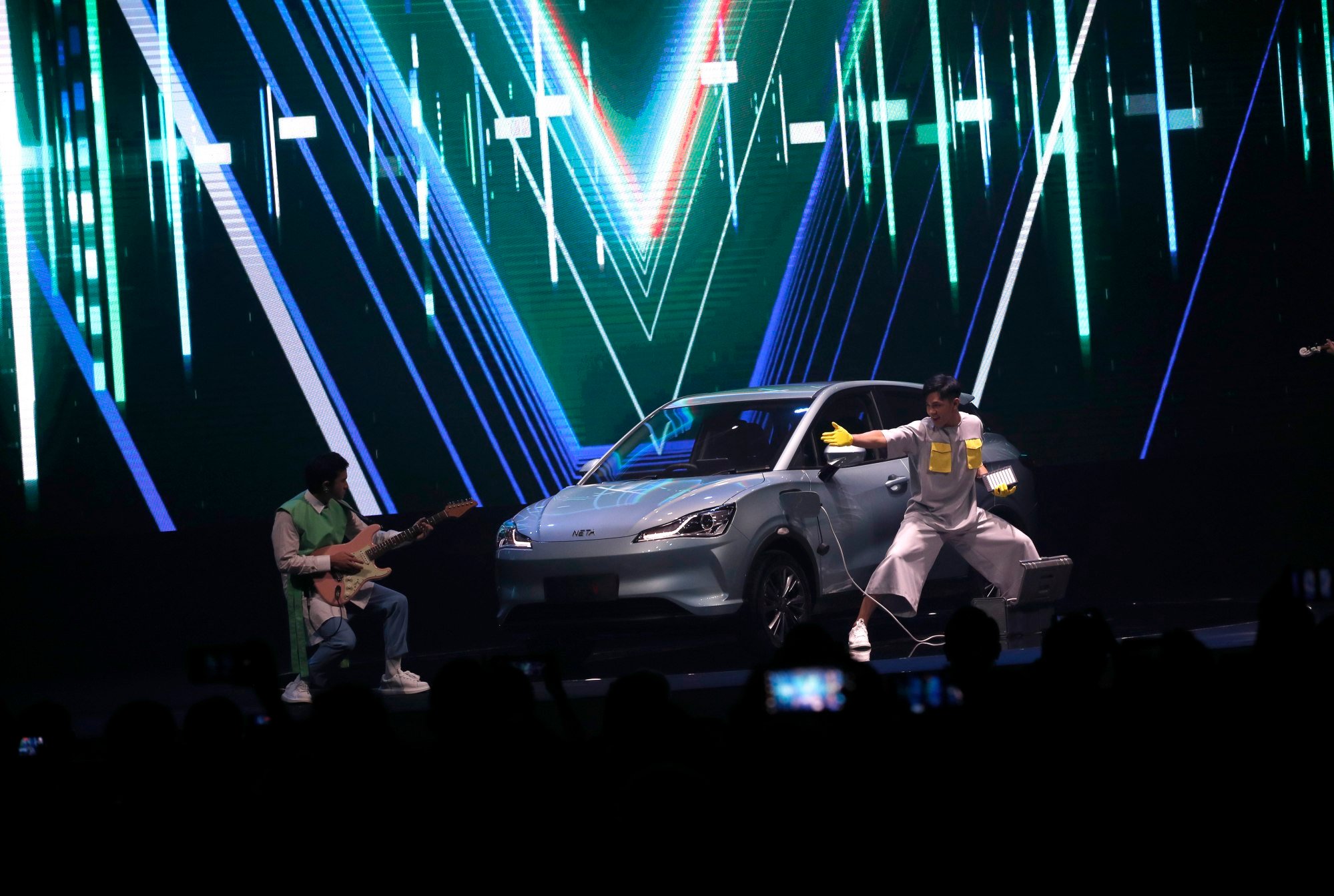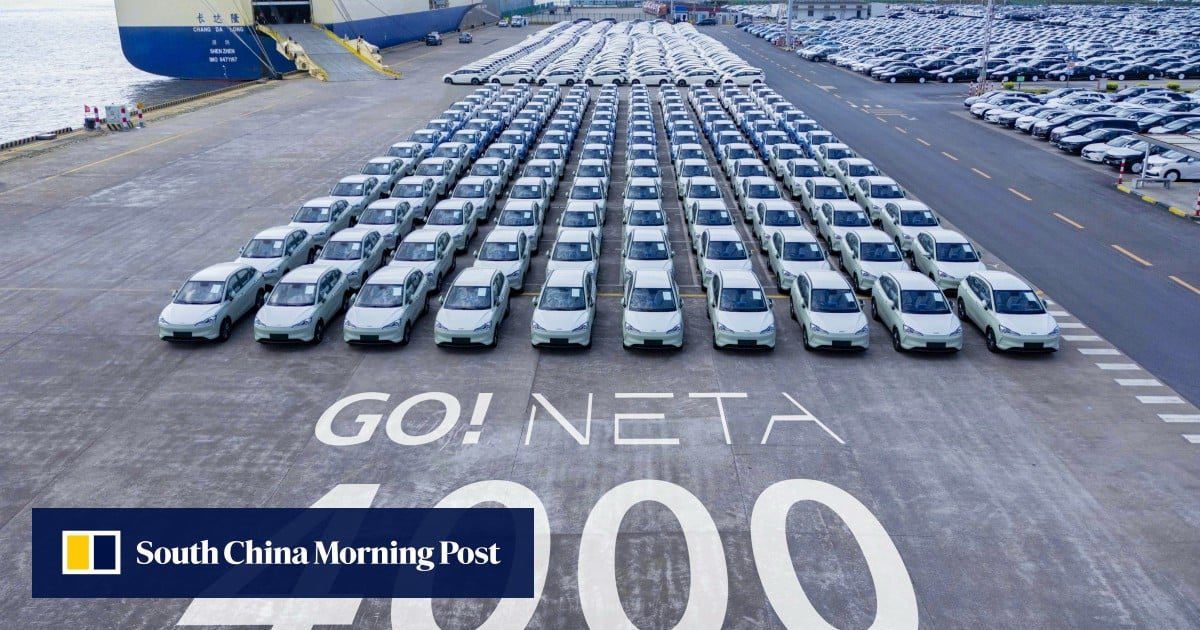Hozon New Energy Automobile, the start-up behind the Neta brand of electric vehicles (EVs), has applied to raise capital in Hong Kong, joining BYD, Xpeng and Li Auto in using the world’s fourth-largest stock market as the launching pad to fund its overseas expansion and escape China’s brutal discount war.
Hozon plans to use the money from its initial public offering (IPO) to support its “internationalisation strategy”, where it plans to “localise” its production facilities in different markets, the Shanghai-based carmaker said, without disclosing the size of its fundraising.
“We will accurately address global user needs and fine-tune our product mix,” Hozon said in the filing to the Shanghai Stock Exchange. “The company will continue to expand sales, service and charging networks worldwide.”

Hozon, founded in 2014, has raised 26.4 billion yuan (US$3.63 billion) in venture capital funding over 11 rounds from 19 investors, according to Crunchbase’s data. Its backers include the Chinese cybersecurity firm Qihoo 360 Technology, Citic Securities and the Beijing municipal government’s EV maker BAIC-BJEV.
Hozon’s loss widened 3 per cent last year to 6.9 billion yuan, after blowing out by almost 40 per cent a year earlier. Its Neta budget EVs – the name is a variation of Nezha, the Chinese patron deity for professional drivers – are priced at between 100,000 yuan (US$13,763) and 200,000 yuan.
The company could raise up to US$1 billion in Hong Kong, according to a Bloomberg report last June, which would make it one of the city’s top 5 fundraising exercises this year.
The company said it had built the first right-hand-drive version of its Neta V-II, an electric compact sport-utility vehicle, at its Bangkok plant in November, about two months ahead of schedule.
The factory, which it built along with its Thai partner, Bangchan General Assembly, has an annual capacity of 20,000 units.
“Chinese carmakers are looking to accelerate their outbound moves to bolster sales as they face difficulties chasing high growth at home,” said Eric Han, a senior manager at Suolei, an advisory firm in Shanghai. “Hozon has opportunities in Southeast Asia where its low-priced cars are attracting local EV fans.”
Hozon shipped 17,019 Chinese-made vehicles abroad in 2023, which represented 13.7 per cent of its total deliveries last year.

